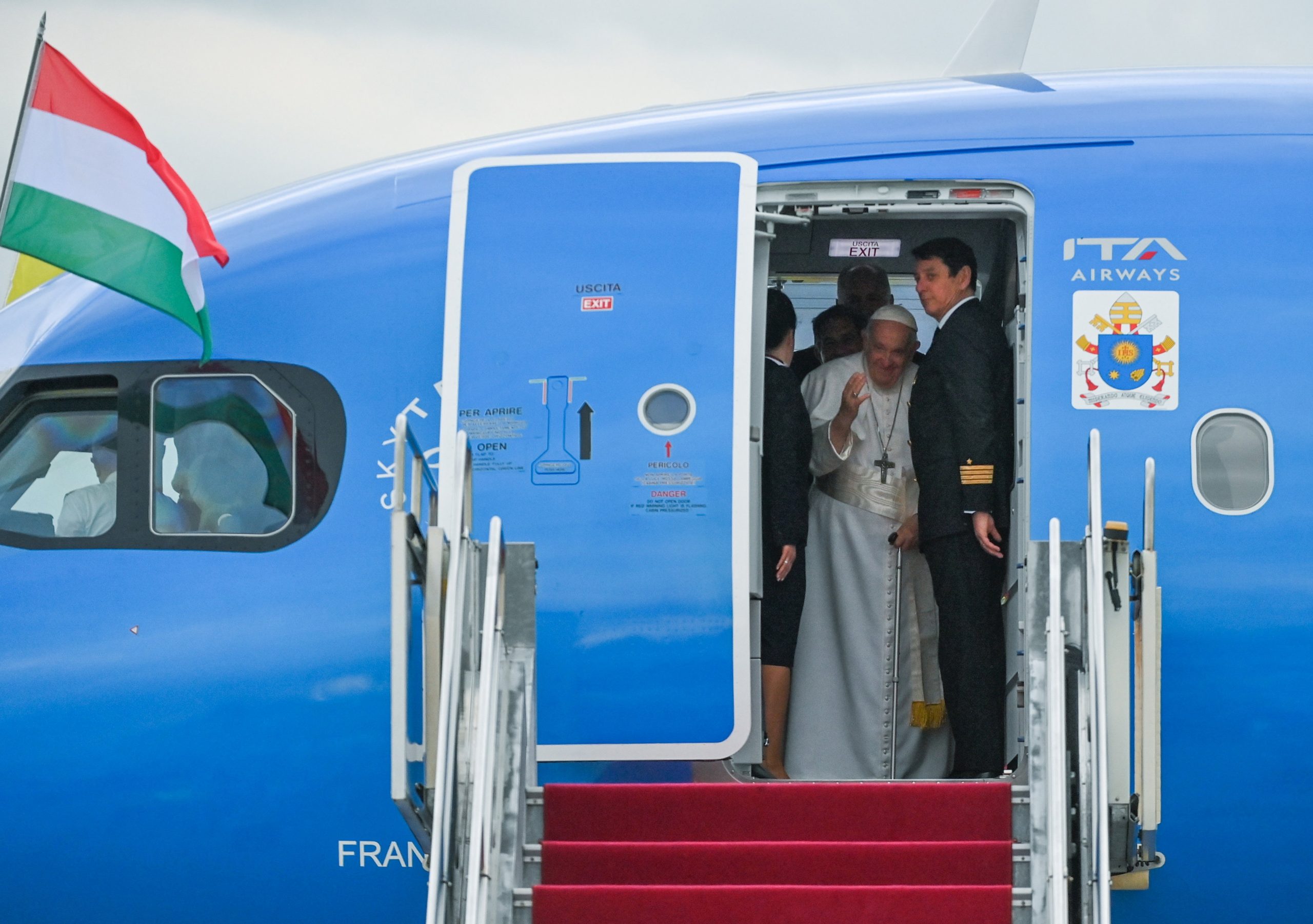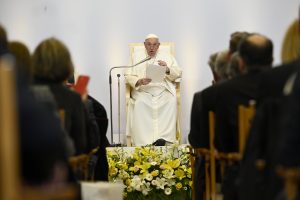
Pope Francis warned of the dangers of consumerism, which has replaced the dangers of communism, in a speech at the Faculty of Information Technology and Bionics of Pázmány Péter Catholic University (PPKE) on Sunday afternoon. He said that the common feature of communism and consumerism is the false idea of freedom. He called for self-knowledge, the recognition of our limits and, consequently, the curbing of our hubris.
During the last meeting of his three-day apostolic visit to Hungary, Pope Francis, in his final meeting with representatives of academic and cultural life, left his audience with the famous words of the Delphic oracle: “Know thyself”. Self-knowledge, he said, means “to recognize our limits and, consequently, to curb our hubris, which is rooted in complacency”.
He added that by recognizing oneself as a creature, one becomes a creator in the world, rather than a master of it. Pope Francis said, “While technocratic thinking pursues progress without limits, man is in fact fragile and it is often at his limits that he understands his dependence on God and his interconnectedness with others and with creation.”
He Pope pointed out: In Hungary, there was a succession of ideologies that presented themselves as truth but did not give freedom. This danger has not disappeared today. What communism and consumerism have in common is the false idea of freedom. The freedom of communism was a freedom that was imposed on the people, that was limited from outside, that was decided by others. And the freedom of consumerism is a libertarian, hedonistic, self-indulgent freedom that enslaves people to consumption and objects.
The head of the Church believes that it is easy to move from the limits on thinking, which is the characteristic of communism, to the “limitless thinking of oneself, which is the characteristic of consumerism”. From a freedom with limits to a freedom without limits.From these, Jesus offers a way out, saying that it is truth that frees man from dependencies and confinement. The key to this truth is a cognition that is never disconnected from love, that remains connected, humble and open, concrete and communal, courageous and creative. This is what universities are called to cultivate and what faith must nurture,” he said.

Pope Francis speaks to his audience at the Péter Pázmány Catholic University. MTI/Kovács Tamás
That is why I wish,” concluded the Head of the Church, “that this university and all others be a center of universality and freedom, a fertile laboratory of humanism and a laboratory of hope.
In his welcome address, Géza Kuminetz, Rector of the Catholic University of Applied Sciences, stressed that Catholic universities try to find and systematize the ideological seeds of God hidden in creation and revelation on the basis of the holistic concept of truth of the Catholic scientific concept. True faith and true knowledge are allies and pillars of each other, he said.
The meeting was attended by János Csák, Minister of Culture and Innovation, Zs. András Varga, President of the Curia. Tamás Freund, current president of the MTA, E. Sylvester Vizi, former presidents of the public body and current head of the Friends of Hungary Foundaiton, György Vashegyi, president of the Hungarian Academy of Arts, Péter Erdő, Cardinal of Esztergom-Budapest, Hungary.
Source: hungarytoday















